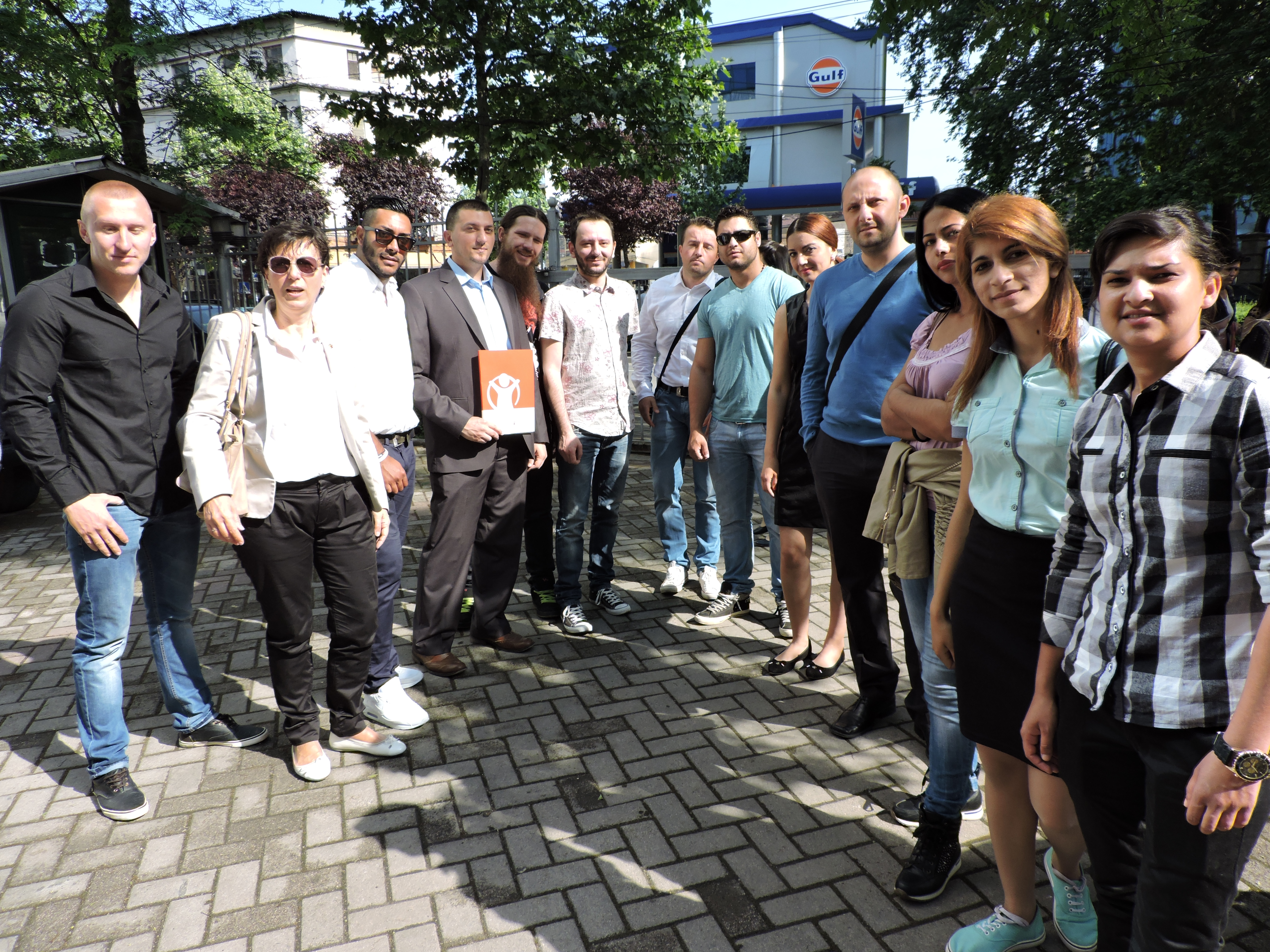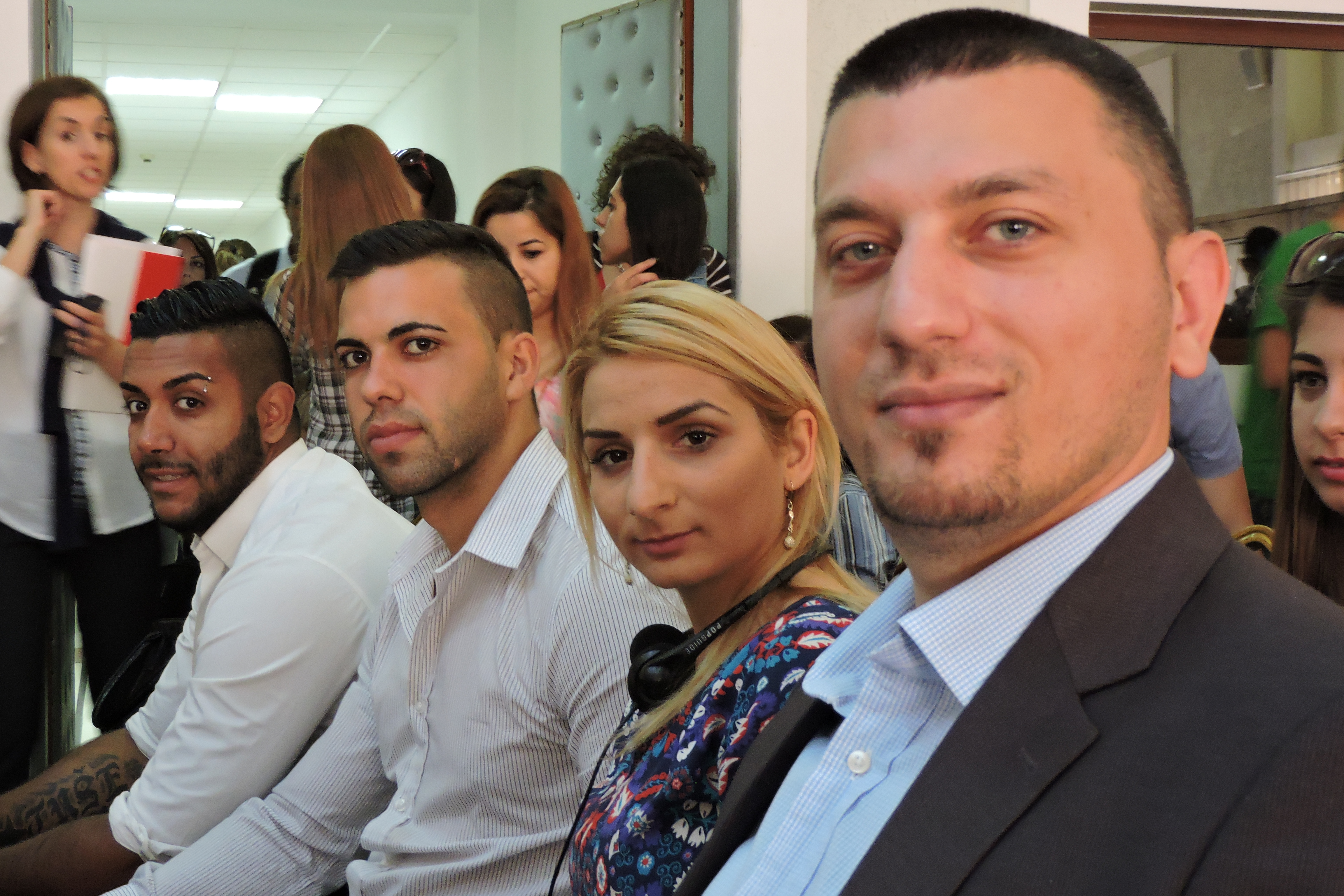 North West Balkans
North West Balkans
Languages
Roma leaders of the future
Exclusion and discrimination prevents young Roma from fully developing their capacities to build independent and productive lives that will be useful for political, economic and social improvement of their communities, countries and region.
In order to lay foundation for active and integrated participation of young Roma in all aspects of social and political life, Save the Children initiated a regional project “Leaders – Young Roma in Action”. The project aimed at strengthening the skills and capacities of young leaders to identify the common factors of exclusion and discrimination that Roma face, and then to prepare feasible and applicable action plans to address these issues by facilitating the interstate exchange and networking, and collaboration with civil society organizations and advocacy initiatives.
Save the Children started with the implementation of this regional project targeting Roma communities in Bosnia and Herzegovina (B-H), Albania and Kosovo in early 2013, supported by the US Department of State. The project now ends, after preparing dozens of young Roma community leaders ready to tackle challenges ahead.
“Regional network of 60 young Roma and non-Roma leaders was established at the beginning of the project and several capacity building trainings organized during the implementation period aimed at raising capacities and competencies of young leaders on how to conduct action researches, how to manage small grants initiatives and improve their organisational skills,” explained Edlira Shima from Save the Children in Albania.
Around 80 young people make the wider LYRA B-H group. Shared goals, knowledge, working environment and practice which were part of project activities helped these youngsters to gain a set of necessary skills to conduct research and advocacy work. They were able to conduct research in their communities, identify main concerns and undertake effective and efficient actions to improve social inclusion, reduce discrimination and increase protection of Roma population at local, national and regional levels.
“In the two years that we leave behind we obtained excellent and capable young people, with capacities to identify problems and help their communities in the efforts to have a better life. We are especially satisfied to see that LYRA young leaders, although belonging to the so-called ‘marginalised groups’, do not think in a ‘marginalised’ way. Their way of thinking is problem-solving based, creative, innovative and optimistic. We have learned a lot from them and it is up to us to find a way to keep supporting them in their efforts to build better lives in their communities,” stressed Amir Basic from Save the Children in North-West Balkans.
Fatima (22) from Bijeljina was once a beneficiary of Roma association “Otaharin” from Bijeljina. Today, she is a volunteer in this organisation, working with street involved children. She says LYRA project helped her realize her potential. “The most important thing we got is education. We are much stronger and have more self-confidence now. Through LYRA engagement, I worked a lot on myself. When I finished high-school five years ago, I wasn’t even dreaming of continuing my education, and now I’m back to school to obtain an upper grade of education, hoping to enrol to university next year. Seeing how my colleagues are completing their studies now, made me want to go further too.”
Local research proved that Roma in B-H live in difficult conditions – high number of Roma have no medical insurance, many Roma abandon their education at early age, they are not adequately informed about their rights, many are not even registered at birth, which makes them invisible to the system, while Roma girls are especially vulnerable, being subject to trafficking and early marriages.
US Department of State deems important to support Roma community having in mind the fact that this is one of the most disadvantaged communities in Europe today. “Through projects like this, we hope that there is greater awareness and understanding of the issues and challenges they face, but also helps to inspire some of the youth in addressing some of the problems they face. Ultimately, it’s going to require understanding from outside of the Roma community, with different civil society and government partners, but also it requires a lot of work and efforts within the Roma community. Projects strengthening capacities of young Roma leaders will help in addressing issues Roma communities face,” said Henry Jardine, Deputy Chief of Mission, US Embassy to Albania, at the regional meeting of LYRA groups held in mid-May in Tirana, Albania.
For majority of the LYRA activists this was the first professional engagement during which they gained valuable skills and knowledge that will serve them in their future professional development, but also in proactive action to resolve the negative phenomena in the society that affect their lives. Paid internships program was also offered to young Roma leaders, with the aim of professional training and improvement of their competitiveness in the labour market.
“Since I am studying to become first grade teacher, when I came to “Nova generacija”, we talked and decided that the best way for me to contribute is to work with young children, helping them with homework, development games, different workshops… This was a chance for me not only to develop my skills, but also to learn about their problems and to see how I can help them,” says Mersiha (22). She completed her internship program with NGO Nova generacija from Banjaluka, a partner of Save the Children in running the Drop-in centre for street involved children.
In the last phase of project implementation, the young Roma leaders and SCiNWB actively cooperated with the B-H Ministry of Human Rights and Refugees as well as with the Roma Advisory Board within B-H Council of Ministers. The cooperation focused on implementation of the action plans in the local communities covered by in LYRA project, where young Roma leaders act as drivers of ideas and actions. It also focused on networking with other partners at the local level to improve the situation of the Roma population.
Even though the end of the project is near, B-H LYRA group will continue with non-formal cooperation in implementation of projects in their local communities, assisting Drop-in centres for street involved children and supporting activities of Regional Network for Street Involved Children.
Find out more about LYRA project in the short film “Bright stories” about LYRA leaders in Bosnia and Herzegovina produced by Save the Children in North-West Balkans or in the documentary about regional activities produced by Save the Children Albania.

